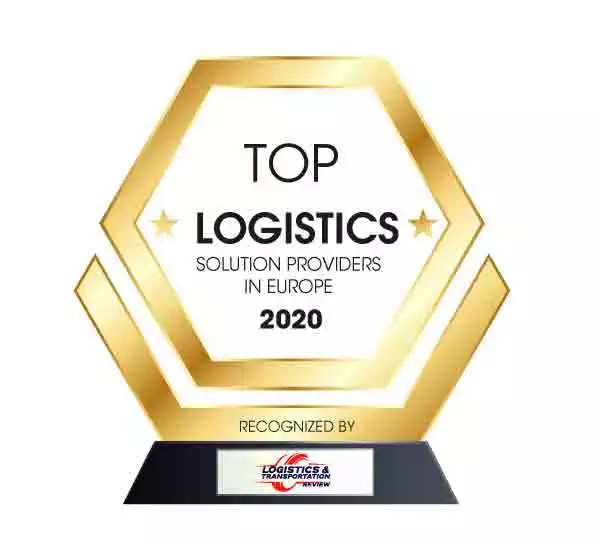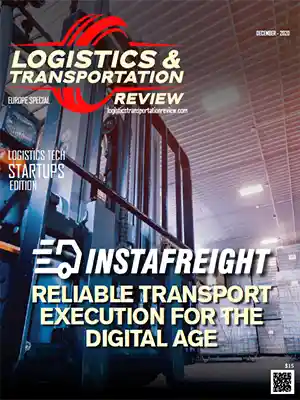THANK YOU FOR SUBSCRIBING
 Andreas Laskaratos, Co-Founder and Managing Director
Andreas Laskaratos, Co-Founder and Managing DirectorThis is where Tradeline—an advanced post-trade workflow automation platform—comes into the picture as a boon for commodity traders. Co-founded in 2017 by Andreas Laskaratos, a former Oil & Oil products commodities trader and two friends, Tradeline is a blockchain-based digital platform entirely focused on eliminating the need for reconciliation and redundant paper-based processes in the physical post-trade lifecycle. The platform creates a secure and reliable post-trade automation environment that enhances interoperability by seamlessly connecting all parties of trade, eliminating erroneous human intervention. “Tradeline was born out of the need to transform the global commodities trading industry,” says Andreas Laskaratos, co-founder and managing director of Tradeline.
Tradeline leverages the IBM blockchain network—the hyper ledger—but the company has engineered it in depth over the years, so much so that it is the only GDPR compliant network in the world. With Tradeline, counterparties can store and share trade-related data and digital documents. It enhances communication and manages logistics efficiently as the web-based platform allows the users to obtain information of a vessel from anywhere, anytime.
The average commodity trade has a complex and inefficient procedure, involving more than 120 emails and the exchange of over 20 physical documents, across multiple stakeholders that don’t have aligned interests or shared trust.
1) Trade Ops: Tradeline provides simple tools to manage term deals with advanced, customisable trade planning capabilities, and it ensures that the clients are always up-to-date with easily accessible data such as commodity pricing, daily storage reports, and more. Furthermore, it allows clients to swiftly generate error-free invoices based on preferred standards of involved parties and securely circulate e-invoices.
2) Trade Financing: Tradeline focuses on eliminating the errors associated with documents such as the letter of credit by automating its processes. The platform also reduces the average time and cost required to orchestrate the cargo documents, trade financing processes, and error-prone invoicing procedures. By digitising the workflow, Tradeline helps its clients save millions of dollars per year on couriering of documents. Additionally, on an average, Tradeline reduces the time required to complete clients’ operations by 87 per cent.
3) Supply Chain: Tradeline’s supply chain offerings enable its clients with all the necessary tools to optimise their post-trade operational workflow. This offering makes document generation and exchanges simple, encouraging paperless trade. The blockchain-based platform creates and shares essential documents such as Bills of Lading, Certificates of Origin, and more according to the clients’ compliance needs. Furthermore, the platform enables secure circulation, tracking, and proof of authenticity to eliminate unnecessary disputes and delays. One of the features of the platform that helps in removing conflicts is enabling chat between counterparties. For instance, Shell and BP entered into a contract, and there is a dispute regarding the bills of lading. To solve the dispute, Tradeline creates a single trade group chat for both the counterparties to upload documents and discuss eliminating the conflict.
One of the unique aspects of Tradeline is that even if one of the counterparties doesn’t use Tradeline’s platform, the one using it can send a one-time link with a code. The other counterparty can log in with the code and get redirected to the platform. This way, Tradeline users can ensure coherence and quality throughout the Trade Lifecycle.
A recent survey conducted by Tradeline with 15 of its existing counterparties revealed that the company’s ecosystem can help post-trade workflows by reducing the time taken for supply chain operations by 79 percent, trade finance operations by c.39 percent, and the probability of error by c.82 percent while helping organisations avoid demurrage costs, minimising risk, and optimising asset utilisation.
With its proven ability to optimally combine digital technology and the complicated commodity trading procedure, Tradeline has carved a niche for itself. Tradeline’s platform has extended its capabilities beyond the commodities market and in soon to be announced projects. “We have built something quite extraordinary, and we have revolutionised the commodities world. It is important to tell people that digitalising the commodities world is necessary. We are transforming the commodities space, but we will start releasing tools for other industries as well,” concludes Laskaratos.
| Share this Article: Tweet |
Company
Tradeline
Management
Andreas Laskaratos, Co-Founder and Managing Director
Description
Tradeline is a blockchain-based digital platform entirely focused on eliminating the need for reconciliation and redundant paper-based processes in the physical post-trade lifecycle. The platform creates a secure and reliable post-trade automation environment that enhances interoperability by seamlessly connecting all parties of trade, eliminating erroneous human intervention. Tradeline leverages the IBM blockchain network—the hyper ledger—but the company has engineered it in depth over the years, so much so that it is the only GDPR compliant network in the world. With Tradeline, counter parties can store and share trade-related data and digital documents








